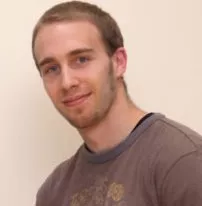
UTM Grad is Golden
The average person doesn’t know their biosensors from their biomarkers, but Russ Algar is far from average and he has the hardware to prove it.
The graduate research Algar completed at U of T Mississauga on quantum dots, a sophisticated type of material that is showing great potential in improving diagnostic technologies, was recognized with the Governor General’s Gold Medal, a top U of T prize that honours academic excellence and outstanding graduate students. The prize was presented on behalf of Canada’s Governor General on June 1st at a reception hosted by the School of Graduate Studies.
Receiving awards is familiar territory to Algar, who earlier this year was also the recipient the Chair’s Doctoral Medal from the Department of Chemistry at U of T, yet he remains enthusiastic and also pragmatic about his successes, recognizing that the opportunities accompanying the accolades are equally important. After completing a PhD in analytical chemistry at UTM in 2010 that also garnered him a Postdoctoral Fellowship in Chemistry from the Natural Sciences and Engineering Research Council of Canada, Algar was able to secure a prominent post-doctoral position with the Center for Bio/Molecular Science and Engineering at the U.S. Naval Research Laboratory in Washington, D.C., where he is currently working.
Algar is obviously a gifted and hardworking scholar in his own right, but he is quick to point to the people in his life that have had a hand in shaping his academic career. Algar, who did not even consider studying science until a particularly dynamic teacher in a Grade 11 chemistry class challenged his previous associations with the discipline, definitely found his niche in the Department of Chemical & Physical Sciences at UTM.
Although he says he was nearly swayed toward physics by the excellent teaching of Professors David Dunlop and Virgis Barzda, Algar experienced a eureka moment as an undergraduate summer student in a chemistry research lab, and soon identified his mentors in Professors Ulrich Krull and Paul Piunno. “I made the decision that graduate studies in analytical chemistry would give me the opportunity to be a bit of a jack-of-all-trades, so that I would be able to indulge my interests in other branches of chemistry, as well as some biology, physics and technology,” says Algar. “Turns out it was the right decision.”
Algar’s research mainly focuses on quantum dots. These minute particles emit a particular bright light and can be used in a number of ways as biosensors, depending on how their unique light is manipulated. Biosensors can be used to detect harmful organisms, such as E. coli in drinking water, or diseases in human beings, by responding to characteristic biomarkers. “In my graduate research, I asked if the special light from a quantum dot could be used to an advantage [in diagnostics], and discovered that it can,” says Algar. “I was able to develop a system that could simultaneously detect multiple DNA biomarkers, in a format well suited to miniaturization, essentially through changes in the colour of light given off by quantum dots. The research involved not only the design of such a system, but also developing new chemistry that could be used to implement it.”
Algar is quite content to continue on his current, decidedly upward, research trajectory, and hopes one day to hold a faculty position at a Canadian university; he feels such a position satisfies the cravings to be creative and industrious through research and teaching in one’s chosen scientific milieu. Algar advises any fledgling graduate students out there to expect some “long and frustrating days,” but not to forget the fulfillment that comes with doing something you truly enjoy. “Sometimes there seems to be pressure in science to ‘chase prestige’ rather than be true to one’s self, but I think there needs to be a balance,” says Algar. “Do research that’s relevant and has a future, but not at the expense of whatever engages you.”
